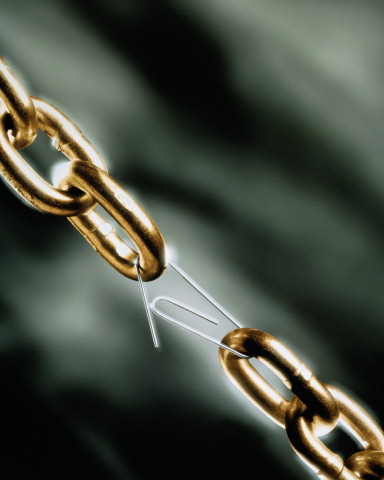
As you know, we cannot just accept a hadith from anyone–this is our deen! If anyone could just say what they wanted, we would have nothing left of the true, pure message of Allah.
The scholars have analyzed the biographies of every narrator of hadith. They compile information on when he was born, and where, his kunya, his tribe, who he met, what his character was, what other people narrated about him … piles and piles of information.
And in the analysis of the chain of narrators–those individuals who transmit a hadith from one to another, from Rasulullah (salallahu alayhi wa sallam) to a collector (like Imam Bukhari, Imam Muslim, etc.)–there are certain types of narrators that, if they are present in the chain, they automatically make the hadith da’eef.
Because they cannot be trusted.
Who are these people, and what are their characteristics? You might be surprised!
- Major Sinners. Anyone who commited a major sin (backbiting? Listening to music? Zina? Cheating? Stealing?) is discounted. Only people known for good, upright, moral character and conduct pass through.
- Liars. Anyone who lies is discounted.
- Accused Liars. Anyone who was accused of lying is discounted. Why? Throws some doubt on their character–maybe they did it, maybe not. Cannot be trusted.
The Weak. Anyone whom a scholar met and said that he’s weak, or he’s not good, or his memory is not strong, automatically discounts a hadith.
- Known Fabricators. Some people are known to fabricate (invent) hadith, either by observation of scholars, or by their own admission (such as Nuh ibn Abi Maryam). They disqualify a hadith.
- The Unknown. Anyone whom the scholars do not know for sure if he’s a strong or weak narrator, disqualifies the hadith. Why? Maybe he’s weak! We don’t know! We know he narrated a hadith, and maybe a couple of people met him; but nobody commented to say he’s a strong narrator; so we don’t know!
Subhanallah, that’s how particular and picky the scholars of hadith were to preserve our deen! May Allah accept all their efforts and make us among the righteous people (ameen).
Action Steps:
- Reflect on these criteria. Ask yourself, seriously: would I be cause for ahadith to be disqualified from being saheeh?
- Make du’a for the scholars, especially the scholars of hadith. They’ve done a hard, difficult, long, thankless job; only Allah knows how much they did. Ask Him to reward them insha’Allah ameen. (Just raise your hands and do it right now, it just takes a few seconds.)
Wallahu ‘alam.
Lecture: Introduction to Mustalah-Hadeeth by shaykh Suhaib Hasan Abdul-Ghaffaar. Available free from http://islamlecture.com/mustalah.htm.